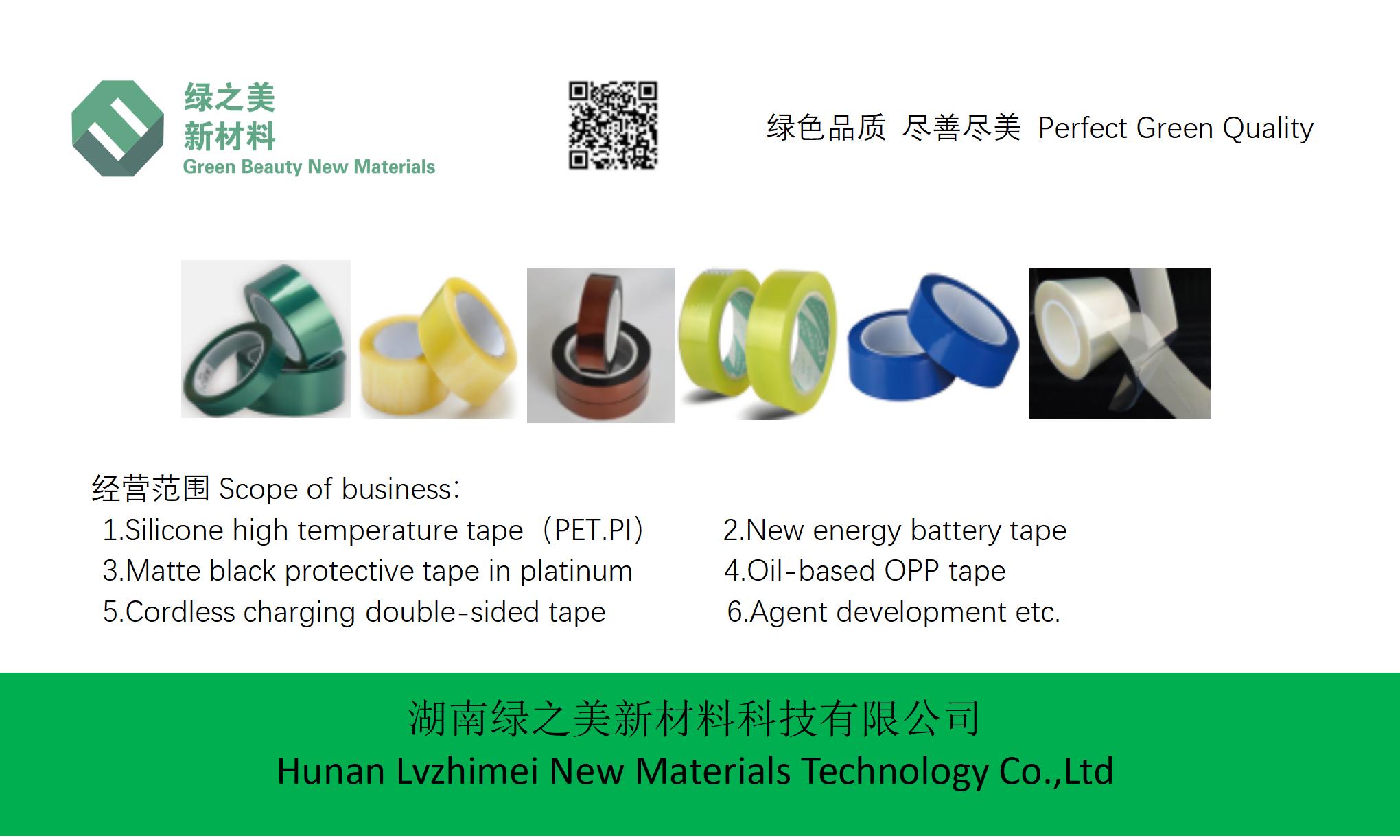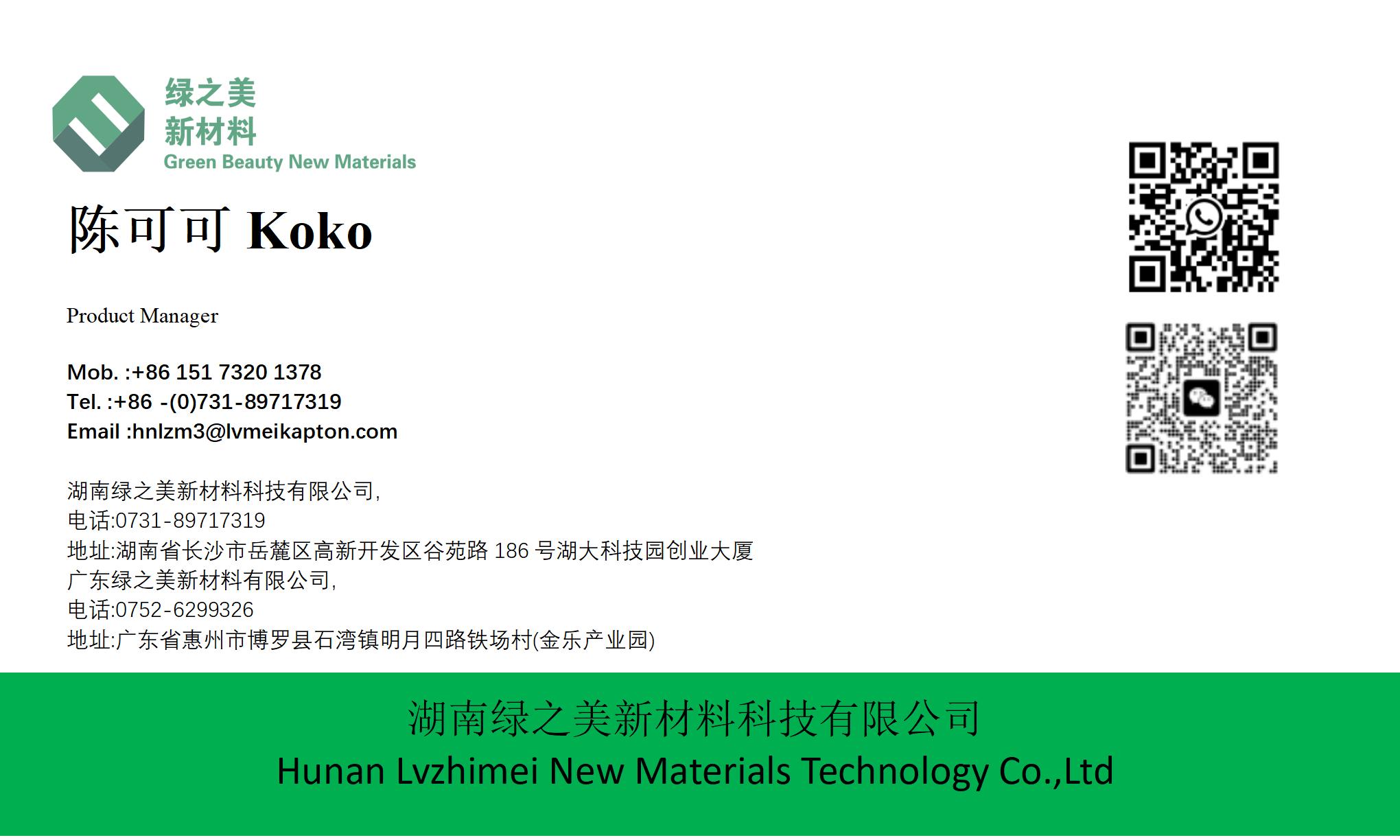hnlzm@lvmeikapton.com
+86 13787123465


Hunan Lvzhimei New Material Technology Co., Ltd.


NameDescriptionContent
What Are the Key Differences Between Generic and LVMEIKAPTON Insulating Electrical Tape? |https://www.lvmeikapton.com/
Source:
|
Author:Koko Chan
|
Published time: 2025-06-26
|
7 Views
|
Share:
Insulating electrical tape serves as a crucial component in safeguarding electrical systems and electronic devices. Its primary functions include electrical insulation, mechanical protection, and cable identification. By isolating conductors and preventing unintended contact, these tapes mitigate the risk of short circuits and electrical leakage. Additionally, they protect wires and cables from abrasion, impacts, and environmental wear, ensuring longevity and reliability. In complex installations, color-coded tapes assist technicians in organizing and distinguishing different circuits, minimizing errors during maintenance. From power infrastructure to consumer electronics, insulating tapes are indispensable for maintaining safety and functionality.
1. Introduction1.1 Importance of Insulating Electrical Tape in Electrical Engineering and ElectronicsInsulating electrical tape serves as a crucial component in safeguarding electrical systems and electronic devices. Its primary functions include electrical insulation, mechanical protection, and cable identification. By isolating conductors and preventing unintended contact, these tapes mitigate the risk of short circuits and electrical leakage. Additionally, they protect wires and cables from abrasion, impacts, and environmental wear, ensuring longevity and reliability. In complex installations, color-coded tapes assist technicians in organizing and distinguishing different circuits, minimizing errors during maintenance. From power infrastructure to consumer electronics, insulating tapes are indispensable for maintaining safety and functionality.
1.2 Highlighting LVMEIKAPTON Insulating TapeLVMEIKAPTON stands out as a high-performance alternative to generic tapes, featuring a polyimide (PI) base material. PI’s exceptional thermal stability, mechanical resilience, and chemical inertness empower LVMEIKAPTON tape to excel in demanding applications. Unlike traditional materials, PI can withstand continuous exposure to temperatures above 200°C, making it suitable for environments where generics fail. This material’s inherent dielectric strength and resistance to solvents and radiation further enhance its reliability. As a result, LVMEIKAPTON tape is widely adopted in aerospace, automotive, and industrial sectors requiring stringent performance standards.
2. Performance Comparison2.1 Mechanical Strength DifferencesLVMEIKAPTON tape’s mechanical superiority is evident in its tensile strength and tear resistance. With a tensile strength of 14 kg/25mm—50% higher than generics’ 9 kg/25mm—it resists stretching and断裂 under stress. Furthermore, its PI structure enhances tear propagation resistance, ensuring integrity even when subjected to sharp bends or abrasion. Generic tapes, often made of PVC or PET, exhibit inferior mechanical properties, compromising protection in dynamic environments. This disparity makes LVMEIKAPTON ideal for applications involving frequent handling or extreme conditions.
Table 1: Mechanical Strength Comparison
Property | LVMEIKAPTON Tape | Generic Tape (e.g., PVC) |
Tensile Strength | 14 kg/25mm | 9 kg/25mm |
Tear Resistance | High | Moderate |
Flexibility | Excellent | Adequate |
2.2 Residual Adhesion ComparisonLVMEIKAPTON tape boasts ultra-low residual adhesion (≤0.1%), minimizing substrate contamination during removal. This property is vital in precision electronics assembly, where adhesive residue can cause short circuits or hinder subsequent processes. Generic tapes, particularly those with acrylic or rubber-based adhesives, often leave stubborn残留物, necessitating tedious cleaning. LVMEIKAPTON’s clean removal saves time and reduces maintenance costs in sectors like medical equipment and semiconductor manufacturing.
2.3 Temperature Resistance PerformanceLVMEIKAPTON’s PI material enables operation across an unprecedented temperature range (-269°C to 300°C). At both cryogenic and elevated temperatures, it maintains stable electrical properties and dimensional integrity. Generic tapes (e.g., vinyl or polyester variants) degrade rapidly beyond their limits: PVC tape softens above 80°C, while PET loses flexibility below -20°C. Consequently, LVMEIKAPTON tape ensures reliable insulation in thermal cycling environments (e.g., automotive engines or solar panels) where generics would fail.
2.4 Chemical Resistance CapabilitiesLVMEIKAPTON tape’s chemical inertness withstands exposure to acids, alkalis, solvents, and oils. Its resistance to aggressive chemicals (e.g., sulfuric acid or NaOH) preserves insulation effectiveness in industrial settings. In contrast, generic tapes may swell, degrade, or lose adhesion when exposed to corrosive agents. For example, prolonged contact with gasoline can cause PE tape to brittle, compromising its protective function. LVMEIKAPTON’s resilience in chemical-intensive environments (e.g., petrochemical plants) enhances safety and reduces replacement frequencies.
2.5 Flame Retardancy VariationsLVMEIKAPTON tape exhibits high flame retardancy (UL94 V-0 rating) without halogen additives. Upon exposure to fire, it chars rather than melts, forming a protective barrier that inhibits flame spread. Generic tapes containing halogens release toxic gases when burning, posing additional hazards. Furthermore, LVMEIKAPTON’s non-halogen formulation complies with environmental regulations, making it preferable in applications with stringent safety and eco-friendly requirements (e.g., public transportation systems).
3. Advantages in Specialized Applications3.1 Superiority in High-Temperature EnvironmentsIn high-temperature scenarios (e.g., motor windings or transformer coils), LVMEIKAPTON tape maintains its dielectric strength and adhesive bond. At 260°C, its insulation resistance remains stable, while generics suffer from thermal degradation. This performance gap ensures uninterrupted operation in aerospace engines, industrial ovens, and high-voltage equipment. Additionally, LVMEIKAPTON’s resistance to thermal aging prolongs component lifespan, reducing downtime.
3.2 Protection of Precision Electronic ComponentsLVMEIKAPTON tape’s thin profile (e.g., 0.025mm thickness) enables precise wrapping of miniature components without altering circuitry. Its smooth surface and low outgassing properties prevent contamination in cleanroom environments. Furthermore, its resistance to ultraviolet (UV) radiation and plasma etching makes it suitable for photolithography masking during semiconductor fabrication. Generic tapes’ inferior dimensional stability and potential particle shedding render them unfit for such delicate processes.
4. Conclusion4.1 Summary of Performance and Application AdvantagesLVMEIKAPTON insulating tape outperforms generics through its:
●
50% higher tensile strength (14 kg/25mm) and superior tear resistance.
●
Ultra-low residual adhesion (≤0.1%) for clean removal.
●
Halogen-free, flame-retardant composition.
●
Temperature resistance spanning -269°C to 300°C.
●
Exceptional chemical resistance and UV stability.
These attributes position LVMEIKAPTON as the preferred choice for critical applications requiring durability, reliability, and compliance with stringent safety and environmental standards. By overcoming generics’ limitations in extreme conditions and precision contexts, LVMEIKAPTON tape enhances electrical system longevity, safety, and efficiency, solidifying its role in advanced technological sectors.
References
1.
ASTM D882-20: Standard Test Method for Tensile Properties of Thin Plastic Sheeting.
2.
UL 94: Standard for Safety of Flammability of Plastic Materials for Parts in Devices and Appliances.
3.
ISO 6721-1: Plastics—Determination of Temperature of Deflection Under Load.
About LVMEIKAPTONLVMEIKAPTON’s polyimide tapes are engineered for performance excellence. Explore our product range at https://www.lvmeikapton.com/ for high-temperature, chemical-resistant, and precision insulation solutions.



Hunan Lvzhimei New Material Technology Co., Ltd.
Quick Links
Product Categories
© 2024 Hunan Lvzhimei New Material Technology Co., Ltd.All Rights Reserved. Designed by Erge
0731 - 89717319
hnlzm@lvmeikapton.com
+86 13787123465
Room 502, Chuangye Building, No186, Guyuan Road, High-Tech District, Changsha, Hunan, China
CONTACT



